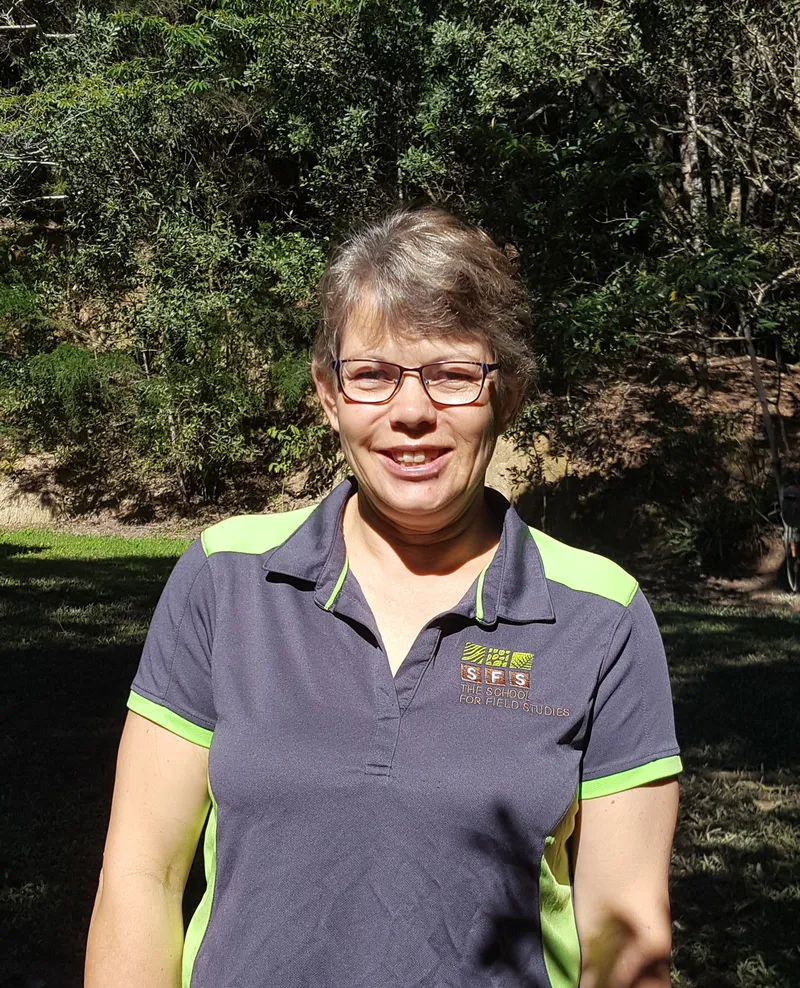
By: Amanda Freeman, PhD
A Conversation with Katlyn Osgood Armstrong
Katlyn Armstrong leads new program development at The School for Field Studies (SFS), a study abroad provider whose programs combine hands-on, interdisciplinary environmental studies with scientific research to propose sustainable solutions to critical environmental problems. Over the past 7 years she has served a variety of roles in both the academic and administrative aspects of the organization, spending the last two focused on new program development.
Katlyn has worked in the field of International Education since 2001. Previous to SFS, Katlyn spent three years at the Council on International Educational Exchange working with the Work & Travel Program. She began her interest in International Educational Exchange in high school when she participated in an exchange to Alicante, Spain. In college, Katlyn spent her junior year abroad in Seville, Spain studying Spanish language, literature, and culture. She returned to the U.S. and began working in the International Programs Office at The University of Massachusetts.
Katlyn holds an MA in Intercultural Relations from Lesley University and a BA in Spanish from the University of Massachusetts – Amherst.

Mandy Reinig (St. Mary’s College of Maryland): What’s on your calendar for today?
Katlyn Osgood Armstrong: My days are really different. Right now I am mainly focused on new program development. Today I have been working on the budget for our new program in Bhutan, which begins this fall, as well as interviewing candidates for the director and faculty positions. It’s really nice; we are starting to see a lot of SFS alumni applying for these positions.
Mandy: Where do you like to travel for fun?
Katlyn: I travel to relax and unwind and to experience a new culture. One of the countries I found surprising, where I was able to combine these two interests, was Cambodia. It is very rich culturally, historically, and environmentally and I think I was expecting it to be a much busier place. I look forward to my next opportunity to return.
Mandy: How many countries have you been to?
Katlyn: About 30.
Mandy: Describe a “pivotal career moment” when you knew you were ready to move from managing education abroad programs to leading a broader internationalization strategy.
Katlyn: There was no real pivotal moment, but over the years, as I gained higher level experience and learned more about the field of international education…when I felt that I could begin to make a positive contribution, I became more involved. After gaining experience in several departments during my time here at SFS, I was asked to lead new program development by SFS President Jim Cramer. This new role draws on all of my past experiences in education abroad, as well as my long knowledge of SFS. As you can imagine, developing new programs is a team effort. I enjoy working closely with all of the different departments at SFS to establish these new programs.
Mandy: What are a few skills you find are necessary to your role as an SIO/Senior EA Professional?
Katlyn: In my current role I often work closely with international partners and represent the many disciplines at SFS. One must learn to navigate cultural differences with a soft touch. “Doing business” within these cultural differences is a skill that you must be continually honed and is never quite perfected. So essential to my success (and sanity) is flexibility, the ability to deal with ambiguity, teamwork and not fearing of change (especially sudden change). As you know, SFS programs run at remote field stations in developing countries, not in cities. Power goes out, the internet may become unreliable, roads may take longer to get cleared after storms. We work together as s an entire staff, to adapt to these sometimes sudden challenges, to ensure the quality of the academic programs, the safety of our students, staff and faculty, as well as having timely communication with our sending institutions.
Mandy: What do you like most about your role as a SIO/Senior EA Professional?
Katlyn: The dynamic nature of the job. Every day is different. It is also immensely satisfying seeing students respond to a program that the team has just spent two years developing. Hearing the impact it’s had on them and their future aspirations is rewarding.
Also, in creating a program, my colleagues and I have the opportunity to travel, meet people in different areas of government, education, cultural preservation, and environmental research. The process of creating a rich program for students can afford my colleagues and myself, an equally rich experience as we develop it.
Mandy: What do you like least about your role as a SIO/Senior EA Professional?
Katlyn: At this point in the field of International Education, we are highly focused on liability and risk management. I find that I spend more time than I’d like speaking with legal counsel and insurance brokers. It’s necessary, but perhaps not as much fun as the other aspects of the job.
Mandy: What are some of the major challenges you face in your role as an SIO/Senior EA Professional and how to you face them?
Katlyn: Coming from an organization that prides itself on a high quality, research-oriented, academic experience, we struggle with keeping tuition affordable and providing as much financial aid as possible to students while still providing a fun, inspiring, academically rigorous program.
Mandy: What are a few pieces of advice you would give new and mid-career EA professionals who are looking to continue on towards eventually becoming a SIO/Senior EA Professional?
Katlyn: I still consider myself to be a mid-career professional, so I’m always looking for advice from my colleagues too! It’s a small field. Personally, I find networking is essential to continually stay current and maintain strong relationships. Connecting with a mentor is also helpful, someone you can seek advice and counsel from. For example, my mentor is the one who introduced me to NAFSA and the Forum.
Mandy: How has NAFSA assisted you in your role as SIO/Senior EA Professional (either with resources, events, etc.)?
Katlyn: NAFSA has provided a ready-made support network both at the regional and national levels, which is especially helpful in a field that is still articulating its own industry standards. The SECUSS-L Listserv has been invaluable.
Mandy: Do you feel there is a shift in the SIO/Senior EA Professional Profile, and that the new generation of SIOs/Senior EA Professionals coming up in the field of IE necessarily needs a PhD to perform well in their position?
Katlyn: This is the million dollar question in EA, and one I ask myself. I think it depends on the nature of your current work and the career path to which you aspire. The field is very practice and experience-based. I have an MA. Looking back, the courses I find that I have drawn from most often are those that were more hands-on and focused on the actual skill sets and knowledge base needed to be successful in the field. In this case, I don’t know that a PhD would be that helpful (an MBA might). However, if you work closely with faculty and curriculum development or assessment, yes, a PhD may be helpful both with establishing credibility and common ground, as well as having deep expertise in a discipline, research and higher education itself.
Mandy: Where do you see yourself in 5 years or 10 years from now?
Katlyn: On a beach! I say that as I look out the window at three feet of snow. I’ve thought about going back to school, but I struggle with the same question we all do; is a terminal degree necessary to be successful in EA? Or are there other avenues for professional development and continuing education that would more appropriate? However, at the moment, I really enjoy being part of the leadership team at SFS.
Mandy: What do you see as current trends within education abroad?
Katlyn: Students are opting for shorter and shorter term programs. This is a trend I’d like to see us reverse. Finances (among other factors) may be a leading cause of this. As a field, I’d like to see us figure out how to better support students financially so that all students have equal access to studying abroad and, at least, the option of a longer term program.
Mandy: What is the one thing you don’t think the field is giving enough attention to?
Katlyn: Working on the provider side, and seeing all of the program elements that we consider in addition to academics, I wonder if we, as a field, are adequately supporting faculty-led programs. Faculty embedding an international experience into their own course is an ideal scenario, however, aside from academic integration, there are so many other aspects to consider and support. For example, these days, there is so much training required just for risk assessment and student health and safety. That alone is a full-time job.
Mandy: What’s the one thing you never travel without?
Katlyn: Good music and toilet paper. You never know! Marc Ribot y Los Cubanos Postizos is great music for flights and long road trips.
For more Career Transitions, Trends, and Tips, visit nafsa.org to see the entire series of interviews.


